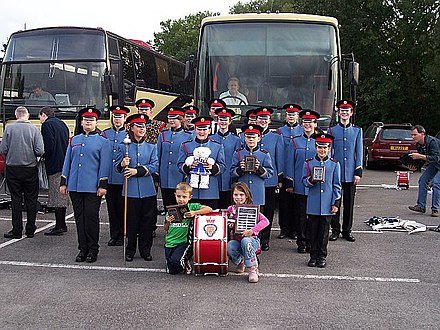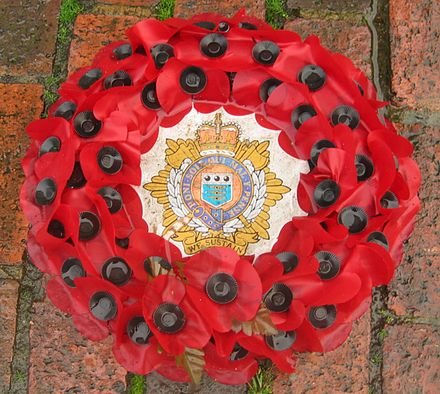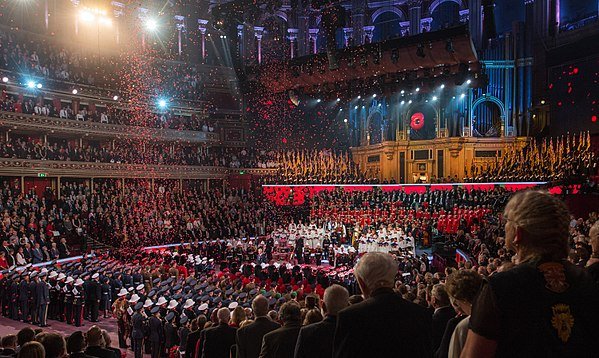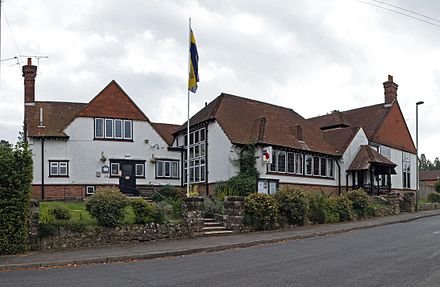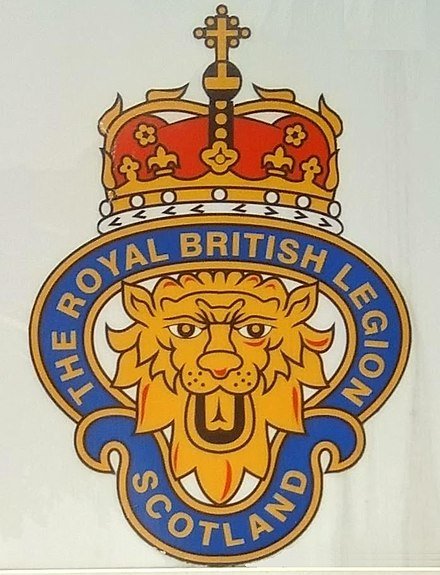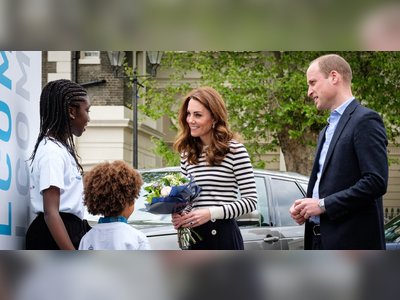British Heritage
Remember, Cherish, Learn.
beta
Royal British Legion
The Royal British Legion: A Cornerstone of British Heritage.
The Royal British Legion (RBL), often referred to simply as the British Legion, has been an integral part of British heritage since its inception in 1921. With a mission centred around the provision of financial, social, and emotional support to the members and veterans of the British Armed Forces, as well as their families and dependents, the organisation's impact stretches far beyond its roots. This article delves into the illustrious legacy, significant contributions, and notable successes of the Royal British Legion, a steadfast beacon of support for Britain's servicemen and women.
The Royal British Legion was founded as a voice for the ex-service community, a merging of four organisations: the Comrades of the Great War, the National Association of Discharged Sailors and Soldiers, and the National Federation of Discharged and Demobilized Sailors and Soldiers. It also included the fundraising department of the Officers' Association.
Field Marshal The 1st Earl Haig (1861–1928), a significant figure in British military history as the commander at the Battle of the Somme and Passchendaele, was one of the founding members of the Legion and served as its president until his death. While initially established and managed by the upper echelons of British society, the Legion soon grew to incorporate a broader spectrum of membership.
The Legion was, in many respects, a product of the First World War. The devastating toll on human life, the resultant social dislocation, and the widespread disillusionment with war as a tool of foreign policy underlined the necessity of an organisation that would provide comprehensive support for veterans. It aimed to bridge the gap between officers and enlisted men, promoting unity among those who had experienced the shared trauma of warfare.
In 1925, the organisation was granted a royal charter and received invaluable patronage from royal circles. During the Second World War, the Legion was active in civil defence, providing officers to the Home Guard. Its membership ballooned with the influx of veterans from the Second World War, peaking at 3 million in 1950 before dropping to half a million elderly survivors by 2003.
The Royal British Legion is perhaps best known for its annual Poppy Appeal and Remembrance services, firmly establishing it as a campaign organisation dedicated to promoting the welfare and interests of current and former members of the British Armed Forces. It also supports nearly 36,000 War Disablement Pension cases for war veterans and makes around 300,000 welfare and friendship visits annually.
The Legion's initiatives extend far beyond its well-known Poppy Appeal. It calls for more research into Gulf War syndrome and compensation for its victims; the upgrading of War Pensions; the extension of endowment mortgage compensation for British military personnel serving overseas; and improved support for British military personnel transitioning into civilian life.
The Legion's fundraising drive, which occurs yearly in the weeks leading up to Remembrance Sunday, is symbolised by the distribution of artificial Remembrance poppy red poppies. These poppies, meant to be worn on clothing, are offered to the public in return for a donation to the Legion. This red poppy has become the registered mark of the Royal British Legion, a symbol of remembrance and respect, with its sole lawful use being to raise funds for the Poppy Appeal. The production of these paper poppies takes place at the Poppy Factory in Richmond, with additional products bearing the Poppy, the trademark of The Royal British Legion, sold throughout the year as part of the ongoing fundraising efforts.
The Legion also organises 'The Festival of Remembrance' at the Royal Albert Hall in London. This ceremony, initially featuring composer John Foulds's World Requiem, now includes military displays, choral works, and prayers. It culminates with Servicemen and Women, representatives from youth uniformed organisations and uniformed public security services parading down the aisles and onto the floor of the hall, followed by a release of poppy petals from the roof.
One of the Legion's most impactful campaigns is the Honour the Covenant initiative. Launched in 2007, this campaign calls on the UK Government to fulfil its commitments under the Military Covenant. This campaign has sought public support to push for policy changes that will improve the lives of servicemen and women, particularly those who have suffered injuries in the line of duty. The campaign has criticised practices such as treating soldiers in wards alongside civilian patients and has advocated for immediate treatment and waived prescription charges for veterans.
The Royal British Legion's contribution to British heritage extends beyond its support for veterans and members of the Armed Forces. It sponsors a website, CivvyStreet.org, which provides service leavers, ex-Service community members, and their dependents with information, advice and guidance on resettlement, learning, and work. This initiative reflects the Legion's commitment to comprehensive support for military personnel, from active service to civilian life.
The RBL has also made a lasting impact on the British cultural landscape. Over 50 Legion bands, ranging from full concert show bands and brass ensembles to pipe and drum bands, marching bands, and youth bands, have emerged globally. The Central Band of the Royal British Legion, in existence since 1944, is considered the Legion's flagship band.
The Royal British Legion's influence can also be seen in its extensive network of social clubs, known as Legion Clubs, throughout the United Kingdom and branches spread worldwide, from the United States to Thailand, Belize, the Falkland Islands, and Hong Kong.
The Royal British Legion stands as a towering testament to the UK's commitment to honouring and supporting its military personnel and veterans. Its contribution to British heritage is profound and multifaceted, from the solemn respect embodied in the annual Poppy Appeal to the direct financial, social, and emotional support provided to service members and their families. The British Legion's legacy is etched not just in the annals of charitable work, but also in the hearts of countless individuals whose lives have been touched by its unwavering service.
Royal British Legion: A Brief Overview
The Royal British Legion was founded as a voice for the ex-service community, a merging of four organisations: the Comrades of the Great War, the National Association of Discharged Sailors and Soldiers, and the National Federation of Discharged and Demobilized Sailors and Soldiers. It also included the fundraising department of the Officers' Association.
Field Marshal The 1st Earl Haig (1861–1928), a significant figure in British military history as the commander at the Battle of the Somme and Passchendaele, was one of the founding members of the Legion and served as its president until his death. While initially established and managed by the upper echelons of British society, the Legion soon grew to incorporate a broader spectrum of membership.
The Legion was, in many respects, a product of the First World War. The devastating toll on human life, the resultant social dislocation, and the widespread disillusionment with war as a tool of foreign policy underlined the necessity of an organisation that would provide comprehensive support for veterans. It aimed to bridge the gap between officers and enlisted men, promoting unity among those who had experienced the shared trauma of warfare.
In 1925, the organisation was granted a royal charter and received invaluable patronage from royal circles. During the Second World War, the Legion was active in civil defence, providing officers to the Home Guard. Its membership ballooned with the influx of veterans from the Second World War, peaking at 3 million in 1950 before dropping to half a million elderly survivors by 2003.
The Royal British Legion is perhaps best known for its annual Poppy Appeal and Remembrance services, firmly establishing it as a campaign organisation dedicated to promoting the welfare and interests of current and former members of the British Armed Forces. It also supports nearly 36,000 War Disablement Pension cases for war veterans and makes around 300,000 welfare and friendship visits annually.
The Poppy Appeal and Beyond: RBL's Noteworthy Campaigns
The Legion's initiatives extend far beyond its well-known Poppy Appeal. It calls for more research into Gulf War syndrome and compensation for its victims; the upgrading of War Pensions; the extension of endowment mortgage compensation for British military personnel serving overseas; and improved support for British military personnel transitioning into civilian life.
The Legion's fundraising drive, which occurs yearly in the weeks leading up to Remembrance Sunday, is symbolised by the distribution of artificial Remembrance poppy red poppies. These poppies, meant to be worn on clothing, are offered to the public in return for a donation to the Legion. This red poppy has become the registered mark of the Royal British Legion, a symbol of remembrance and respect, with its sole lawful use being to raise funds for the Poppy Appeal. The production of these paper poppies takes place at the Poppy Factory in Richmond, with additional products bearing the Poppy, the trademark of The Royal British Legion, sold throughout the year as part of the ongoing fundraising efforts.
The Legion also organises 'The Festival of Remembrance' at the Royal Albert Hall in London. This ceremony, initially featuring composer John Foulds's World Requiem, now includes military displays, choral works, and prayers. It culminates with Servicemen and Women, representatives from youth uniformed organisations and uniformed public security services parading down the aisles and onto the floor of the hall, followed by a release of poppy petals from the roof.
Honour the Covenant Campaign
One of the Legion's most impactful campaigns is the Honour the Covenant initiative. Launched in 2007, this campaign calls on the UK Government to fulfil its commitments under the Military Covenant. This campaign has sought public support to push for policy changes that will improve the lives of servicemen and women, particularly those who have suffered injuries in the line of duty. The campaign has criticised practices such as treating soldiers in wards alongside civilian patients and has advocated for immediate treatment and waived prescription charges for veterans.
The Legion's Contribution to British Heritage
The Royal British Legion's contribution to British heritage extends beyond its support for veterans and members of the Armed Forces. It sponsors a website, CivvyStreet.org, which provides service leavers, ex-Service community members, and their dependents with information, advice and guidance on resettlement, learning, and work. This initiative reflects the Legion's commitment to comprehensive support for military personnel, from active service to civilian life.
The RBL has also made a lasting impact on the British cultural landscape. Over 50 Legion bands, ranging from full concert show bands and brass ensembles to pipe and drum bands, marching bands, and youth bands, have emerged globally. The Central Band of the Royal British Legion, in existence since 1944, is considered the Legion's flagship band.
The Royal British Legion's influence can also be seen in its extensive network of social clubs, known as Legion Clubs, throughout the United Kingdom and branches spread worldwide, from the United States to Thailand, Belize, the Falkland Islands, and Hong Kong.
Conclusion
The Royal British Legion stands as a towering testament to the UK's commitment to honouring and supporting its military personnel and veterans. Its contribution to British heritage is profound and multifaceted, from the solemn respect embodied in the annual Poppy Appeal to the direct financial, social, and emotional support provided to service members and their families. The British Legion's legacy is etched not just in the annals of charitable work, but also in the hearts of countless individuals whose lives have been touched by its unwavering service.
- Royal British Legionen.wikipedia.org
